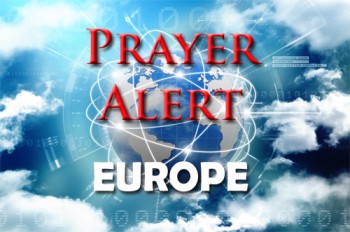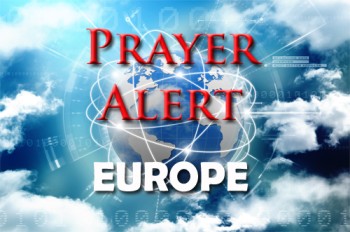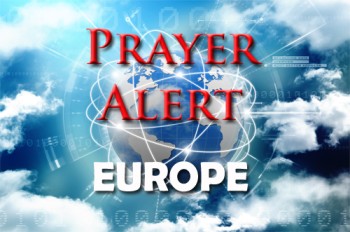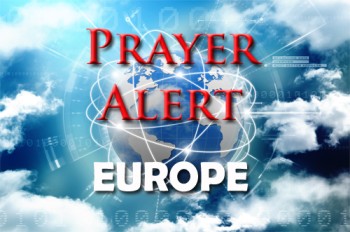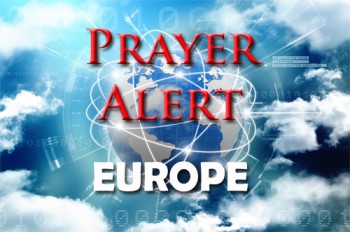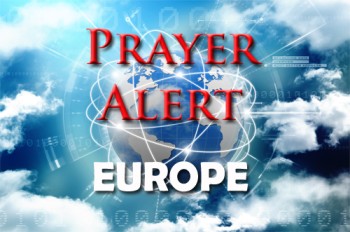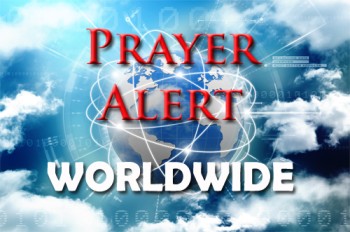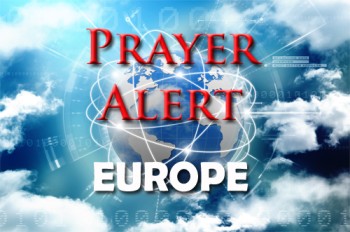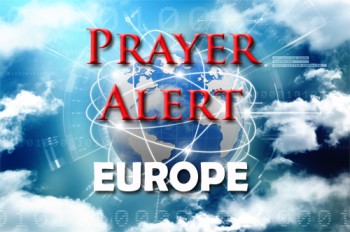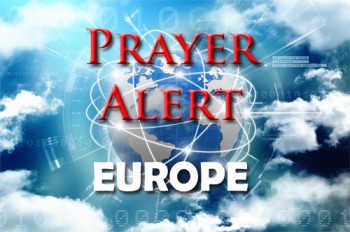Displaying items by tag: Europe
Canary Islands: wildfire forces 3,000 to evacuate
Almost 3,000 people have had to evacuate their homes in Tenerife as a wildfire, caused by embers left smouldering from an August blaze, re-ignited on the Spanish island. Unseasonably hot weather (up to 39°C) sparked the flames, which engulfed the north east of the island on 5 October. About 2,400 people have been evacuated from the town of Santa Ursula and another 600 from La Orotava. Teams of firefighters and six water-dropping helicopters worked to battle the fire overnight. The August fire had been brought under control but was never completely extinguished, with embers still burning in the forest. The firefighters have requested support from the army’s military emergency unit. The island’s councillor in charge of emergencies, Blanca Perez, told local radio this fire ‘has been stabilised, we are seeing how it evolves to determine if in a few hours residents can return to their homes’.
Russia: proposal to nuke Siberia strongly criticised
The editor-in-chief of RT, formerly Russia Today, has threatened legal action against critics after a backlash to her comments proposing a nuclear strike on Siberia. ‘Slanderers get ready’, Margarita Simonyan wrote on her Telegram channel, announcing that she had filed a defamation complaint against parliamentary aide Nikolai Korolev and warning of action against others. The often-controversial executive, among the most powerful in Russian media, has drawn criticism over a bizarre video monologue in which she appeared to propose a nuclear detonation in Russia as a deterrent against the West. The video triggered an avalanche of criticism from pundits and politicians. Mr Korolev said, ‘Such statements are a violation of the legislation of the Russian Federation, not to mention the wildness and absurdity’. Other critics noted that the history of Soviet nuclear tests in Siberia has left a legacy of contamination. The Kremlin moved to distance itself from Ms Simonyan, who has a close relationship with Vladimir Putin.
Russia: many more soldiers accused of murder
Independent news outlet Vyorstka has reported a huge uptick in the number of Russian soldiers facing trial for murders committed outside the conflict zone in Ukraine. At least 147 soldiers went on trial for murder between January and September, compared to the 15 murder cases heard against soldiers in military courts in all of 2022. Court verdicts from this year indicate that most soldiers facing trial committed murders under the influence of alcohol. In one case an intoxicated soldier killed a woman with a Kalashnikov assault rifle after learning that she did not support Moscow's invasion of Ukraine. He was sentenced to nine years in prison in March. It is unclear whether the figures cited by Vyorstka include members of the Wagner mercenary outfit, which recruited prison inmates to fight in Ukraine in exchange for pardons. Among the weapons used in the murders were knives, axes, pistols, and Kalashnikovs.
Youth vs Europe: 'unprecedented' climate trial
Six young people from wildfire and heatwave-affected areas in Portugal have taken 32 European governments to court, accusing them of violating their human rights by not taking sufficient action on climate change. The case, filed in September 2020 against all the EU member states and also Britain, Switzerland, Norway, Russia, and Turkey, is the largest climate case ever heard by the European Court of Human Rights (ECHR) in Strasbourg. A ruling is expected in the first half of 2024. The applicants argue that the failure to address climate change endangers their rights to life and physical and mental well-being. One of the applicants, 15-year-old Andre Oliveira, highlighted the impact of heat extremes on his ability to exercise and spend time outdoors, leading to sleep difficulties and worsening conditions due to weak climate policies.
Ukrainian forces’ ‘success’ near Bakhmut
Ukrainian forces have reportedly achieved success in villages near Bakhmut, a key town previously seized by Russian forces. According to Ilia Yevlash, spokesperson for Ukraine's forces in the east, Russian troops fired on Ukrainian soldiers 580 times and used aircraft four times. Ukrainian troops have made significant progress, with defenders continuing to repel the enemy under heavy fire. The spokesperson claimed that 141 Russian troops were killed and several pieces of artillery equipment destroyed. Ukrainian forces in the south are reportedly preparing to advance towards the Sea of Azov, prompting Russian forces to bring in reserves. Volodymyr Zelenskiy commended the successes in his recent address, noting damage to Russian logistics and headquarters. Additionally, Ukraine has conducted attacks inside Russia and Russian-occupied Crimea. The counteroffensive operations launched in early June have resulted in gains in eastern and southern regions, despite the challenging conditions of heavily mined and destroyed areas.
Russia: Navalny loses appeal against 19-year jail term
Russian opposition leader Alexey Navalny has lost his appeal against a 19-year prison term, which was added to his existing sentence last month. The ruling was upheld by a Moscow court, with the proceedings closed to the media except for the reading of the verdict. Navalny, considered the most prominent figure in Russia's opposition movement, has been seen as a symbol of hope for many, with supporters likening him to Nelson Mandela. His political movement has been banned, and key figures have either been jailed or forced to flee the country as part of a government crackdown on dissent. His latest sentence was imposed on charges related to alleged ‘extremist activity’, which he denies. He was already serving an 11-and-a-half-year sentence on fraud charges, which he also described as politically motivated. Navalny's appeal rejection comes despite international admiration for his return to Russia after being poisoned with a nerve agent in Siberia, an act he attributes to the Kremlin. The Russian government has sought to diminish Navalny's political significance and portrays him as an extremist and a puppet of foreign intelligence agencies.
Niger: Macron orders military exit
French president Emmanuel Macron has announced the withdrawal of French troops from Niger and the repatriation of the French ambassador, following a military coup in the country. He stated that France would end its military cooperation with the de facto authorities in Niger, citing their lack of commitment to fighting terrorism. The decision comes after weeks of tensions with the junta and a deteriorating situation. Macron specified that the soldiers stationed in Niger would return to France in an orderly manner over the coming weeks and months, with the goal of completing the withdrawal by the end of the year. The announcement was met with joy in Niamey, the capital of Niger, as thousands of people rallied in support. Macron's decisions were made in coordination with Nigerien president Mohamed Bazoum, who remains under house arrest, and leaders of the Economic Community of West African States (ECOWAS).
Germany: shortage of teachers
As the new school year begins in Germany, the biggest problem is still the nationwide shortage of teachers. This could be remedied, for example by employing career changers, having larger classes, and using more hybrid lessons (partly online). But this increases the risk that the existing teachers may suffer illness or even resign and makes the general atmosphere and conditions for the students to learn well in lessons more challenging. In addition, due to measures introduced during the Covid crisis, learning deficiencies and mental illnesses have increased significantly among children and young people. The fear of being infected by Covid has now been replaced by fears about climate change and the apocalypse (the world coming to an end). These take away motivation and willingness to learn. The building of a world for tomorrow requires not only discipline, but above all a vision.
King Charles’ visit to France
On 21 September, King Charles III followed in his mother's footsteps by addressing lawmakers in the French upper chamber, the Senate. He focused on a message of unity between France and the UK, ending with a personal pledge to strengthen what he described as the ‘indispensable’ relationship between the two countries during his time as monarch. He also suggested that France and Britain should team up to jointly tackle the climate and biodiversity emergencies with a new version of the 1904 Entente Cordiale pact that sealed the friendship between Paris and London. The king’s speech, which he delivered in English and French, received a standing ovation as it came to a close.
Poland / Ukraine: dispute over grain escalates
One of Ukraine's staunchest allies, Poland, has said it will no longer supply weapons to its neighbour, as a diplomatic dispute over grain escalates. The dispute began after the Russian invasion forced Ukraine to find alternative overland routes, which led to large quantities of grain ending up in central Europe. Consequently, the EU temporarily banned imports of grain into five countries to protect local farmers, who feared Ukrainian grain was driving down prices. The ban ended on 15 September, but Hungary, Slovakia and Poland decided to keep on implementing it. Remarks by President Zelenskiy at the UN, that it was alarming how some of Ukraine's friends were ‘making a thriller from grain’, have been denounced by Warsaw as unjustified. Prime minister Mateus Morawiecki was adamant Poland was helping Ukraine defeat the ‘Russian barbarian’ by maintaining a military hub, but he said he would not agree to Poland's markets being destabilised by grain imports. Ukraine has filed lawsuits with the World Trade Organisation against the three countries over the bans, which it says are a violation of international obligations.
